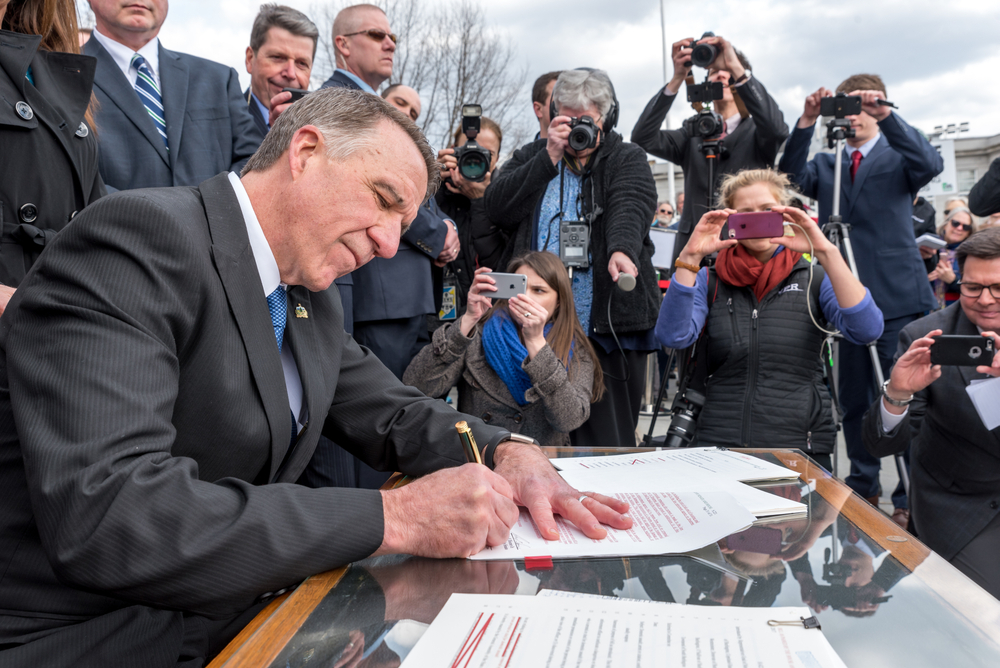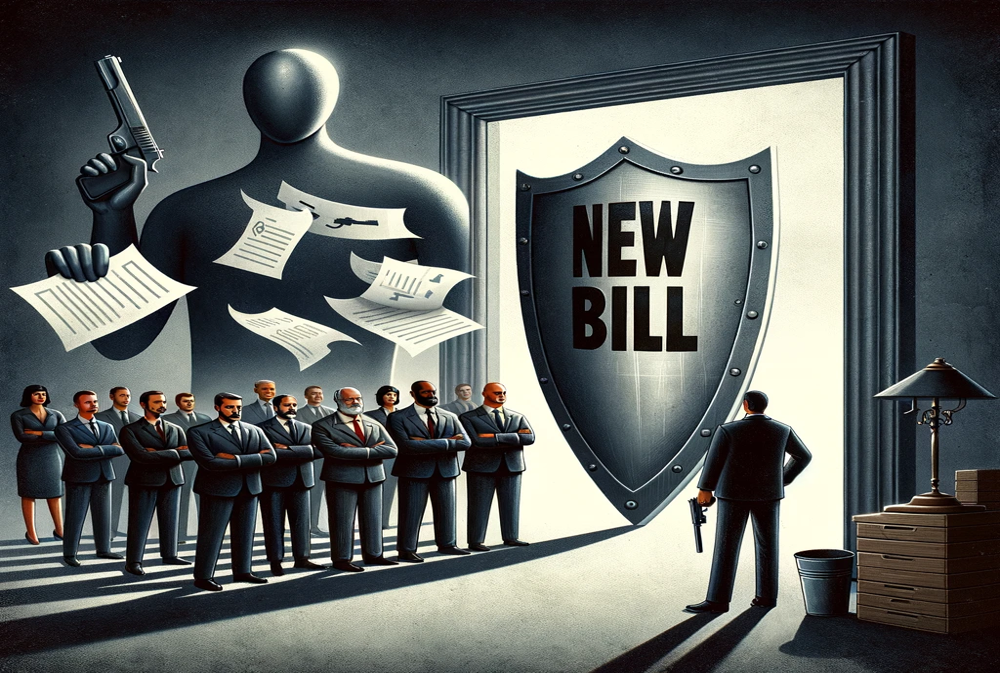2A NEWSLETTER: WEEK OF MARCH 1ST
New Bill Shields Gun Dealers from Biden's ATF Overreach
Iowa Senator Joni Ernst has taken a stand against an aggressive overreach by the Biden administration and its use of the ATF to clamp down on gun dealers. This crackdown unfairly targets law-abiding businesses over minor infractions.
Ernst's legislation, introduced with the intent to shield gun dealers from undue federal pressure, proposes a system where firearm licensees can rectify statutory and regulatory violations without facing the dire consequence of having their licenses revoked or renewal denied. This legislation is a direct response to the gun dealers across the nation who have reported severe impacts on their businesses due to license revocations by the ATF, a practice that has seen a sharp increase under the current administration.
Anthony Navarro, a gun dealer whose license was revoked in 2022 following three warnings for legal violations dating back to 2009, shared with the Wall Street Journal the significant impact of this enforcement on his business. “We were making $1 million a year, now it’s less than $100,000,this policy is designed to be a backdoor violation of the Second Amendment."
Ernst criticizes the ATF's approach as a deliberate attempt to undermine gun owners and dealers, accusing the agency of advancing a gun-grabbing agenda that prioritizes penalization over cooperation and compliance. Her bill, known as the FIREARM Act, aims to establish a supportive environment for gun dealers, enabling them to self-disclose any violations without fear of immediate penalization. This initiative mandates the ATF to collaborate with gun dealers to address and rectify these violations, fostering a cooperative rather than punitive relationship. Furthermore, the Act introduces a provision for a direct judicial review of any decisions to revoke a dealer's license, ensuring that such significant actions are subject to thorough legal scrutiny.
The legislation has garnered support from key figures within the gun rights community, including Lawrence G. Keane of the National Shooting Sports Foundation, who praised Ernst for her leadership and commitment to repairing the public trust in federal regulatory agencies. Similarly, GOP Representative Darrell Issa has echoed Ernst's sentiments, highlighting the need to protect Americans from what he views as an abuse of power by the administration aimed at eroding Second Amendment protections.
The issue has gained significant attention, especially in light of recent ATF actions that have seen a notable increase in license revocations, surpassing figures from both the Trump and Obama administrations. This uptick has raised concerns about the ATF's enforcement policies, particularly those introduced under Attorney General Garland's Gun Crime Prevention Strategy, which aims to tighten regulations on gun dealers.

Image Source: Shutterstock via Uuganbayar
Battle Over Bump Stocks Hits Supreme Court
The Supreme Court appeared divided Wednesday, with conservative justices questioning the clarity of the federal statute that bans machine guns, suggesting that the specific inclusion of bump stocks under this category was not explicitly addressed by Congress.
The liberal justices, however, seemed to align with the notion that bump stocks fall squarely within the type of devices Congress intended to regulate when enacting machine gun restrictions. Meanwhile, figures like Justice Amy Coney Barrett and Justice Neil M. Gorsuch expressed sympathy for the rationale behind the ban but underscored the need for Congress to explicitly legislate on the matter.
Michael Cargill, a veteran and gun store owner, emerged as a challenger to the bump stock ban, arguing that the Bureau of Alcohol, Tobacco, Firearms and Explosives (ATF) exceeded its authority with the reinterpretation of federal machine gun limits to include bump stocks. This legal battle not only questions the ATF's regulatory scope but also touches on broader concerns among Second Amendment advocates about governmental overreach and the erosion of gun rights.
The Supreme Court's consideration of this case occurs amidst a broader legal landscape where gun rights are being fiercely debated. Following a landmark decision that expanded gun rights by requiring historical precedent for firearm regulations, the court's ruling on bump stocks could have profound implications for future gun legislation and the interpretation of the Second Amendment. This case is pivotal in protecting individual freedoms against arbitrary regulatory interpretations and affirming the necessity of clear legislative action to govern the use of firearms and related devices.

Image Source: Shutterstock via Bob LoCircero
Vermont's 80% Lower Ban Rundown
Vermont's move to clamp down on "ghost guns" with the recent passage of S.209 has gun rights advocates up in arms. The bill is aimed at getting homemade firearms without serial numbers into the system through serialization and background checks is a direct hit to Second Amendment freedoms.
The Vermont Federation of Sportsmen’s Club are calling this out as unnecessary hassle for law-abiding gun enthusiasts. They argue that making people who build their own guns—completely legally, by the way—go through this new red tape misses the mark. It's not these hobbyists you have to worry about, they say, but the criminals who won't bother following the rules anyway.
The resistance to S.209 isn't just about resisting change. It's about sticking up for the principle that the right to bear arms shouldn't come with burdensome caveats, especially for those who've always played by the rules. This debate is bigger than Vermont; it's about ensuring that in the push for safety, we don't trample on the freedoms that define us.
As this bill heads through the legislature, it's become a rallying cry for gun rights supporters. They're not just fighting a piece of legislation; they're standing up for what they see as a fundamental American value—freedom, plain and simple.




 Back to List
Back to List